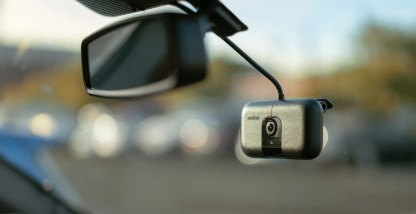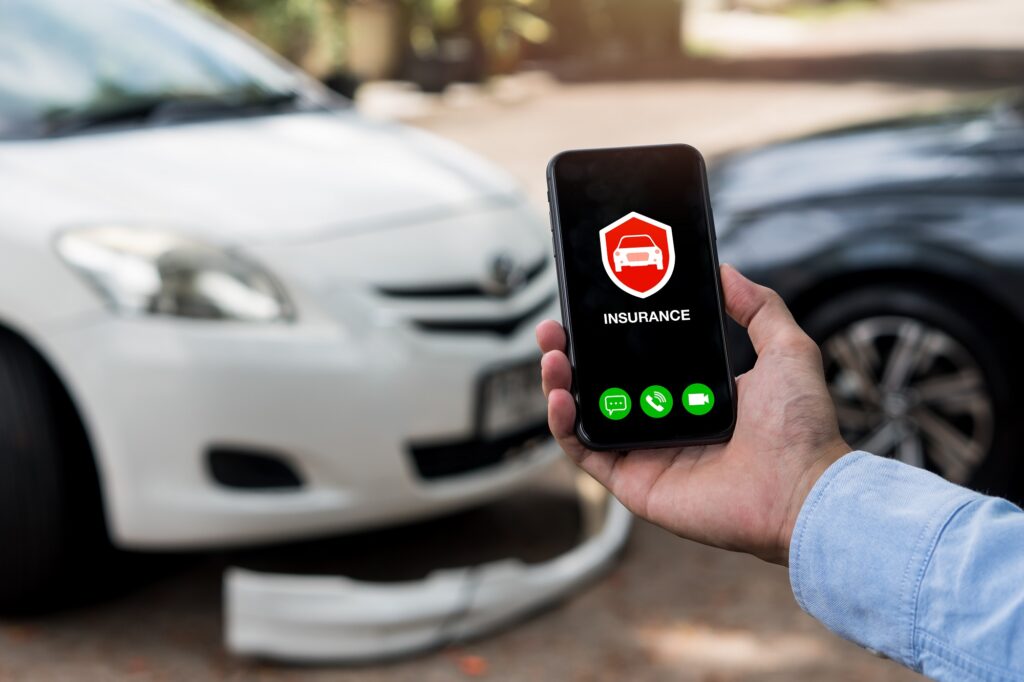The Benefits of Dash Cams and Their Impact on Car Insurance
In recent years, dash cams have become a popular addition to vehicles, offering drivers a valuable tool for capturing footage of their surroundings.

In recent years, dash cams have become a popular addition to vehicles, offering drivers a valuable tool for capturing footage of their surroundings. While insurers generally don’t offer direct discounts for using a dash cam, these devices can still provide significant benefits that might indirectly help you save money and potentially prevent insurance rate hikes. This blog will explore how dash cams work, their advantages, and their effect on car insurance.
Key Takeaways
Dash cams are small cameras mounted on a vehicle's dashboard or windshield, recording video of the road and surroundings. They may offer additional features such as rear view, internal view, audio, GPS, and time/date stamps. While they do not directly lead to insurance discounts, they can be used as evidence to support your claims and disputes. The cost of dash cams varies, with basic models starting at around $50 and more advanced options exceeding $500. It’s important to note that the footage from a dash cam can sometimes present you in a less favorable light, so it’s crucial to weigh the potential benefits against this possibility.
Does Having a Dash Cam Affect Car Insurance?
Dash cams can indirectly impact your car insurance rates by helping to prevent or mitigate insurance hikes after a claim. Even if you're not at fault for an accident, your insurer might still increase your premium when your policy renews. Having video evidence that clearly shows the other driver was at fault can be instrumental in keeping your rate as affordable as possible. The footage serves as impartial proof of the incident, which can be particularly useful in disputing a rate increase due to a claim.
Do I Have To Tell Insurance About a Dash Cam in My Car?
Owning a dash cam is not a requirement for informing your insurance company. While it is optional to notify your insurer about having a dash cam, sharing relevant footage of an incident might help in resolving claims or disputes. Keep in mind that dash cam footage provides an unbiased view of events. If the footage shows you driving recklessly or possibly being at fault, it might not necessarily work in your favor. The decision to share the footage with your insurer should be made carefully, considering both potential benefits and risks.
Which Car Insurance Companies Offer Dash Cam Discounts?
Currently, major U.S. insurance companies do not offer direct discounts for having a dash cam. While you won’t see immediate savings on your premium, having dash cam footage can still be valuable. For example, in the event of a no-fault accident, your footage can provide clear evidence of the other driver’s fault, which could help in maintaining a clean driving record and potentially qualifying for good driver discounts if offered by your insurer. Although the direct discount isn’t available, the ability to verify your claims and demonstrate your innocence can have other positive impacts on your insurance experience.
What Do Dash Cams Record?
Dash cams are designed to capture a variety of footage to provide a comprehensive view of your driving environment. Most commonly, they record video from the front of your car, but some models also offer additional features such as rear view, internal view, audio recording, GPS tracking, and time/date stamps.
Dash cams typically start recording when they receive power from your vehicle and continue until their memory is full. When the memory is full, they either stop recording or overwrite the oldest footage. Some advanced models offer live feeds, allowing you to view the footage in real-time via an app. Additionally, many dash cams have a “parked mode,” which activates recording if movement or impact is detected while the car is parked, providing extra security against theft or vandalism.
When Do Insurance Companies Request Camera Footage?
Insurance companies generally do not request dash cam footage unless you provide it during a claim process. The footage you submit can help clarify the details of an incident, especially in cases of dispute. Providing dash cam footage can assist insurers in verifying the accuracy of a claim, helping to resolve disputes more effectively. However, it’s important to note that while the footage can be beneficial, insurers typically do not proactively ask for it.
What Are the Benefits of a Dash Cam?
Dash cams offer several advantages that can be valuable in various situations. Here are some key benefits:
-
Provides Evidence: The primary benefit of a dash cam is its ability to capture unbiased footage of events. This can be crucial in proving your innocence if you’re involved in an accident and the other driver disputes the details. The footage can support your claim by providing clear evidence of what happened, which can be useful in dealing with insurance claims or legal disputes. Additionally, dash cams can capture evidence of theft, vandalism, and other incidents covered by your comprehensive coverage.
-
Combats Insurance Fraud: Dash cams can help protect you from insurance fraud by providing evidence if another driver attempts to stage an accident or make a fraudulent claim. For instance, if a driver tries to lure you into a collision by making sudden stops, the footage can prove the fraudulent nature of their claim. This can be valuable in fighting false claims or lawsuits, protecting your insurance record and potentially saving you from unfair financial liability.
-
Helps Improve Your Driving Skills: Reviewing footage from your dash cam can be a useful tool for self-assessment. By watching your driving habits, you can identify and correct mistakes, leading to improved driving skills. Although this might not result in direct financial savings, better driving practices can help you avoid accidents and maintain a good driving record, which could eventually lead to qualifying for good driver discounts.
-
Monitors Other Drivers: For parents of new drivers or individuals who share their vehicle with others, a dash cam can provide valuable insight into driving habits. Monitoring your teen’s driving or a friend’s use of your car can help ensure safe driving practices and provide evidence if an accident occurs. This can be especially important for preventing accidents and ensuring the safety of all drivers involved.
How Much Does a Dash Cam Cost?
The cost of a dash cam can vary significantly depending on its features. Basic models typically start at around $50, while more advanced versions can exceed $500. The price often reflects factors such as video quality, additional features like night vision, and the type of storage used. Dash cams usually rely on micro SD cards for storage, which can fill up quickly and require manual management. Some models offer cloud storage options, which can simplify storage management but might involve additional fees.
Features such as GPS tracking, emergency alerts, and radar detection can also affect the price. For example, some dash cams include features that alert you when drifting out of your lane or automatically send emergency alerts in the event of a serious accident. These additional capabilities can enhance safety but may increase the overall cost of the device.
When Are Dash Cams Worth It?
Investing in a dash cam can be worthwhile depending on your specific needs and circumstances. While they do not provide direct insurance savings, the ability to resolve disputes, prove your innocence, and potentially protect against fraud can offer significant value. The added safety features and monitoring capabilities can also make the investment worthwhile. Ultimately, if the benefits of having a dash cam outweigh the cost, it can be a valuable tool for any driver looking to enhance their safety and protect their interests on the road.
FAQs
1. Do dash cams affect insurance rates? Dash cams do not directly affect insurance rates. However, they can help mitigate insurance rate hikes by providing clear evidence of fault in the event of an accident. This can be useful in keeping your insurance premiums as low as possible if an insurer decides to raise rates after a claim.
2. Do I need to inform my insurer about my dash cam? It is not mandatory to inform your insurer about your dash cam. However, you may choose to share relevant footage with your insurance company if it can help support your claim or resolve a dispute. Be aware that the footage is unbiased and could potentially show you in a less favorable light if it reveals reckless driving.
3. Which insurance companies offer discounts for dash cams? As of now, no major U.S. insurance companies offer direct discounts for using a dash cam. While having a dash cam may not result in immediate savings, it can help verify claims and maintain a clean driving record, which could potentially lead to other discounts in the future.
4. What features do dash cams offer? Dash cams typically record video from the front of your vehicle, but many models also offer additional features such as rear view, internal view, audio recording, GPS tracking, and time/date stamps. Some advanced models include live feed capabilities and a "parked mode" that activates recording if the car is disturbed while parked.
5. How much should I expect to pay for a dash cam? Dash cam prices vary depending on features and quality. Basic models generally start at around $50, while more advanced versions can exceed $500. Factors influencing the price include video quality, storage options, additional features like night vision, and GPS tracking.
6. When is a dash cam worth the investment? A dash cam is worth the investment if its benefits, such as providing unbiased evidence in case of accidents, combating insurance fraud, and improving driving skills, outweigh the cost. It can be particularly valuable for those who want added security, better monitoring of driving habits, or additional safety features.
7. Can dash cams help with disputes or claims? Yes, dash cams can be very helpful in disputes or claims. The footage can provide clear, unbiased evidence of what occurred during an incident, which can be crucial in proving your innocence, resolving disputes, and supporting your insurance claims.
8. How does dash cam footage help prevent insurance fraud? Dash cam footage can help prevent insurance fraud by providing evidence that disproves fraudulent claims. For example, if another driver stages an accident or makes a false claim, the footage can reveal the true circumstances, protecting you from unfair liability and potential financial loss.
9. What are the storage options for dash cam footage? Dash cams typically use micro SD cards for storage. Some models offer cloud storage options, which can simplify management but may involve additional fees. It's important to manage storage effectively to avoid overwriting important footage, especially if your dash cam does not support cloud uploading.
10. Are there any additional features that can increase the cost of a dash cam? Yes, additional features such as GPS tracking, emergency alerts, lane departure warnings, and radar detection can increase the cost of a dash cam. These features enhance safety and convenience but can contribute to a higher price for the device.
What's Your Reaction?


















